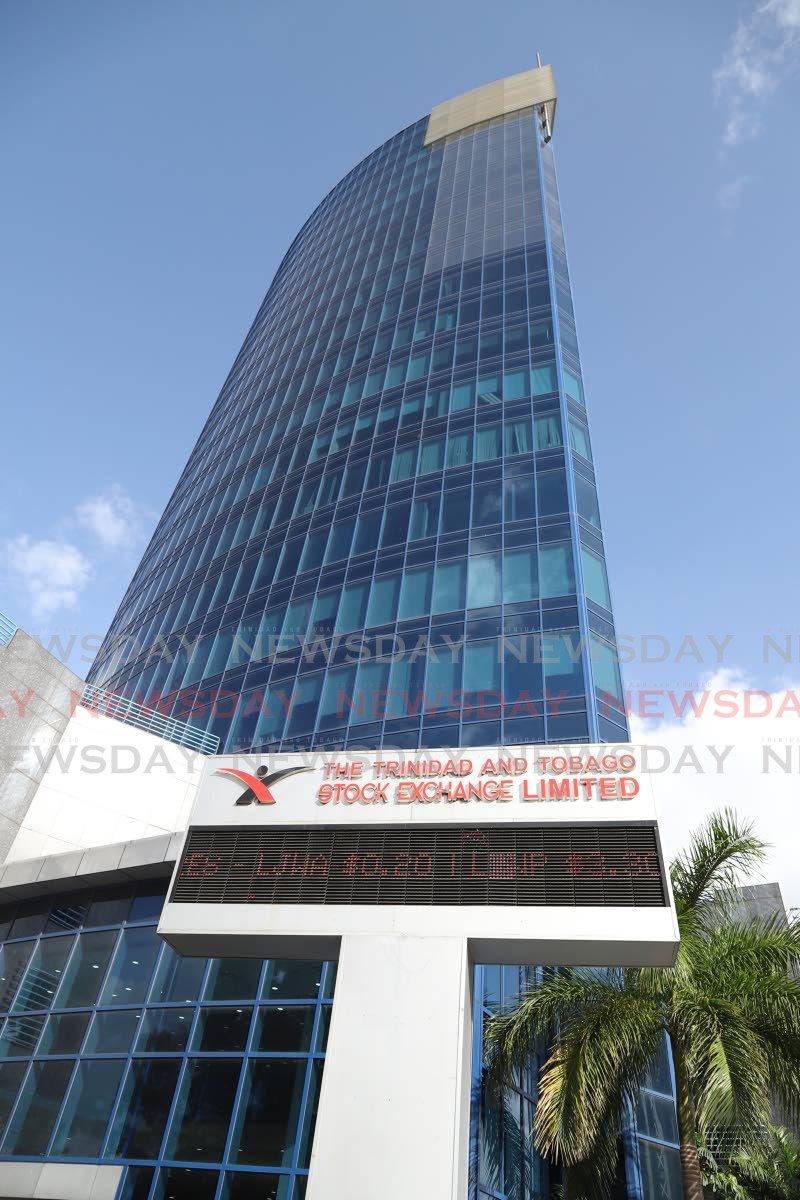Copyright newsday

TRINIDAD and Tobago’s next stage of economic growth depends on a stronger, more inclusive capital market that mobilises private capital and public confidence. This was a central theme among public and private-sector economic and business experts, who spoke at the TT Stock Exchange’s Capital Markets and Investor Conference 2025 on October 24 at the Hyatt Regency, Port of Spain. The country, some argued, must move beyond dependence on state spending and mobilise private capital to finance development. Minister of Planning, Economic Affairs and Development Dr Kennedy Swaratsingh said government alone can no longer sustain national growth. "The drive for economic activity outside the hydrocarbon sector will depend heavily on the private sector," he said. "Government has to focus on legislation, policy and the enabling environment, while capital markets take the lead in funding growth." Swaratsingh said this requires widening participation beyond institutional investors and encouraging retail investment to deepen liquidity on the TT Stock Exchange (TTSE). He said the administration’s cluster approach – combining planning, finance, trade and tourism – was designed to co-ordinate policy across sectors. "The ad hoc approach that got us to 2025 will not suffice in this new climate," he said. "We cannot wait. The urgency to act is now. The next phase of development will depend on implementation, and on your participation in it." He noted that discussions are underway with the World Bank and other multilateral partners to support reforms aimed at unlocking underperforming public assets. "We have significant liquidity and valuable state assets," said Swaratsingh. "Real estate is just the beginning. Our goal is to bring more of these onto the stock exchange, broaden the capital base and invite the private sector to own and drive value creation." Finance Minister Davendranath Tancoo, who opened the conference, framed the government’s fiscal and capital-market agenda within a wider demographic context. TT’s ageing population, he warned, threatens the sustainability of the National Insurance Fund unless citizens shift from dependence on state transfers to active investment and saving. He announced a series of initiatives intended to democratise ownership and stimulate the domestic market. These include the creation of a state-sponsored Real Estate Investment Trust, backed by government-owned commercial properties, and a $1 billion National Investment Fund bond, both to be listed on the TT Stock Exchange. "These policies will unlock value from assets sitting on the state’s balance sheet and give citizens a direct stake in the country’s wealth," Tancoo said. "It’s about transforming government-held assets into vehicles for public investment. Instead of the state owning everything, citizens will share in the returns." Tancoo said the government is also reviewing tax incentives for small and medium-sized enterprises (SMEs) that choose to list on the exchange, to encourage entrepreneurship and diversification beyond the energy sector. "When SMEs list, they not only raise funds, they strengthen governance, transparency, and public trust," he said. "That is how we build a culture of ownership and resilience from the ground up." He added that capital-market reform must go hand in hand with digital transformation. "We are working with the Stock Exchange to digitise the issuance of government bonds," he said. "The goal is to make investing as seamless as sending a message – to remove friction and expand access." Tancoo stressed that policy credibility remains the foundation of investor confidence. "When investors see a government modernising its own systems, it sends a signal – a signal of reliability and seriousness," he said. "That confidence flows directly into the capital markets." Howai: Balancing monetary policy and capital growth Central Bank Governor Larry Howai said the financial system remains in a constant state of transition, with monetary policy needing to adapt to global and domestic shocks while supporting capital-market development. "There is always rebalancing taking place," he said. "Our mandate is to promote monetary and exchange conditions most favourable to economic development, but every policy tool has trade-offs. "The challenge is finding the intelligent path that minimises negative effects." Howai said the Central Bank is monitoring interest-rate differentials between TT and US Treasury bills to determine whether adjustments are needed to attract capital inflows while protecting domestic borrowing costs. He also sought to correct the public perception that the Central Bank is the dominant supplier of foreign exchange. "Only about 20 per cent of forex distributed through the system comes from Central Bank interventions," he said. "The remaining 80 per cent originates from private companies and individuals. That’s why broadening participation in export and investment activities is so critical." Howai urged closer co-ordination between fiscal and monetary policy to balance inflation control and growth, while highlighting initiatives to modernise the domestic market. "We are working with government on the securities settlement system to widen participation and liquidity," he said. Citing lessons from the region, he praised Jamaica’s creation of a vibrant junior stock exchange and said TT should consider similar reforms. "Innovation continues to drive market development," Howai said. "Indeed, we are seeking to determine at a Central bank the prospect of using newer technologies such as tokenisation and wholesale CBDC (Central Bank Digital Currency) which could improve securities settlement." Technology and the new financial architecture PricewaterhouseCoopers (PwC) partner Anthony Zamore said the world is in the middle of a second great financial "rewiring," driven by AI, blockchain and tokenisation – forces he described as reshaping how money, markets and regulation interact. "The world we live in today is fundamentally different from the last few decades." He traced the first major "reset" of modern finance to 1971, when the US abandoned the gold standard. "The discipline of gold was replaced by the creativity of markets," Zamore said. "Finance became an engineering exercise – designing instruments to price, transfer and trade risk." That shift, he argued, unleashed derivatives, offshore euro-dollar markets and new models of innovation that shaped global finance for 40 years. He said a second reset was unfolding "as money moves from paper to programmable money." Zamore pointed to the emergence of stablecoins, digital tokens backed by sovereign currencies and issued on public blockchains, noting that their market value already exceeds US$300 billion. "If we do not craft relevant regulation to accept these instruments," he warned, "they will reach our markets anyway – but through unhosted wallets, outside our oversight." He said the same technologies underpin decentralised finance (DeFi) platforms, where lending and trading occur without permission and intermediaries, anywhere in the world, posing both risks and opportunities for traditional banks and regulators. For TT and the wider Caribbean, Zamore saw particular promise in tokenising real assets – from sovereign bonds to renewable-energy projects – to attract global investors and lower transaction costs. He also highlighted the potential for regional innovation. "We have a lot of talented people – computer science and engineering graduates. We can build this technology for our own use cases and export it to other markets. So huge, huge opportunities for us," he said. "The winners of this era will not be the biggest markets but the most adaptive ones." Zamore called for collaboration to move from discussion to implementation. "There's nothing standing in the way of us tokenising stocks, for instance, on the TT Stock Exchange," he said. "(There are) public blockchains that have been up for the last 16 years. The Bitcoin blockchain or the Ethereum blockchain have never gone down." Bridging the investment gap Andre Jeffers, group chief strategy officer at Ansa McAL, refocused the discussion on what he called the "missing bridge" between private, founder-led businesses and the country’s public markets – a gap he said must be repaired if TT is to "future-proof generational businesses." "Our capital bridge is broken," Jeffers said. "Private equity is scarce. Literally, this is a capital markets conference and we don’t really have representation from private equity firms. "I'm talking about that risk debt, that high-yielding debt, that mezzanine instrument, partnering alongside private equity to allow those businesses to transition." He described how many family-owned enterprises, now in their third and fourth generations, are facing succession challenges without viable exit options. "When legacy has no exit options," he said, "exit ends up happening by attrition instead of strategy." Jeffers said the blueprint for private-equity development already exists and urged policymakers, investors and bankers to act. "We need incentives around fund creation, around private equity and venture firms, and around liquidity if we want that final crossing of the bridge," he said. Calling it "a rallying call," Jeffers added, "All the ingredients are here – mature companies, cash-rich investors and a public market ready to run. "We just need to get off our proverbial and do something about it."



